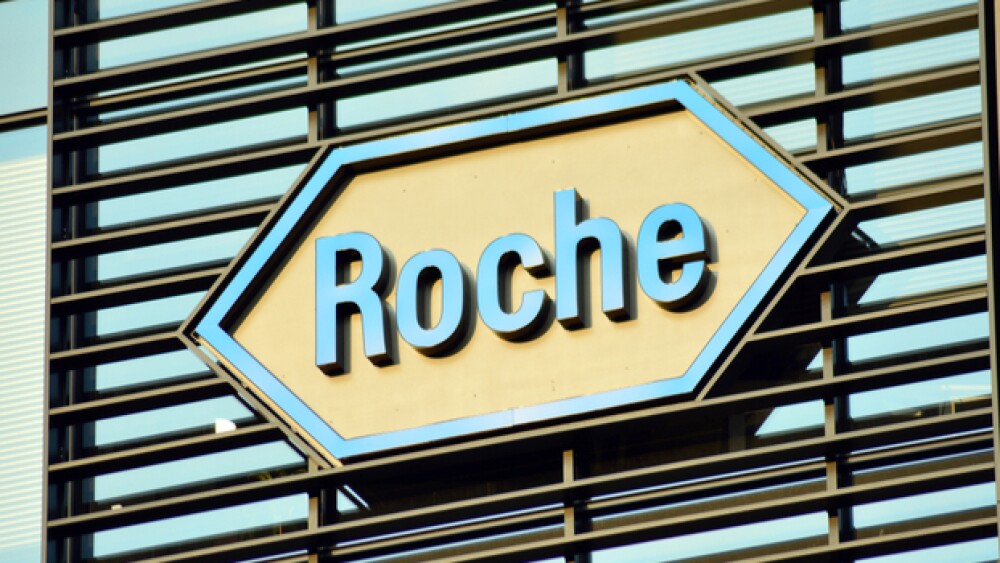Tecentriq is a monoclonal antibody that binds with the PD-L1 protein expressed on tumor cells and tumor-infiltrating immune cells. It blocks interactions with both PD-1 and B7.1 receptors.
Grand Warszawski / Shutterstock.com
The U.S. Food and Drug Administration (FDA) granted accelerated approval to Roche’s Genentech for Tecentriq (atezolizumab) plus chemotherapy, Abraxane, to treat unresectable locally advanced or metastatic triple-negative breast cancer (TNBC) in patients whose tumors expressed PD-L1. The specifics of the cancer are determined by an FDA-approved assay, developed by Roche, which was also given approval.
The drug was granted accelerated approval based on progression-free survival (PFS). Under this approval process, confirmatory clinical trials have to be continued, or the approval can be canceled. The FDA’s Accelerated Approval Program focuses on conditional approval for drugs that fill an unmet medical need for a serious or life-threatening illness.
The accelerated approval was built on data from the Phase III IMpassion130 trial, showing that Tecentriq plus nab-paclitaxel significantly cut the risk of PFS by 40 percent compared with nab-paclitaxel alone in PD-L1-positive patients with TNBC who hadn’t received previous chemotherapy. Genentech indicates that overall survival (OS) data were “immature,” and more data would be provided to the FDA and presented at an upcoming medical meeting.
Safety and adverse event-data for the combination was consistent with the known safety data for individual drugs. No new safety signals were observed with the combination.
Tecentriq is a monoclonal antibody that binds with the PD-L1 protein expressed on tumor cells and tumor-infiltrating immune cells. It blocks interactions with both PD-1 and B7.1 receptors. When it inhibits PD-L1, it allowed the activation of T-cells, allowing these immune cells free rein to attack the cancer.
“The FDA approval of this Tecentriq combination is an important treatment advance for people with PD-L1-positive, metastatic triple-negative breast cancer, a disease with high unmet medical need,” stated Sandra Horning, Roche’s chief medical officer and head of Global Product Development. “This Tecentriq combination is the first cancer immunotherapy regimen to be approved in breast cancer, representing a meaningful step forward in the understanding of this disease.”
Along with the drug combo, the FDA approved the Ventana PD-L1 (SP142) Assay as the first companion diagnostic to identify TNBC patients eligible for treatment with Tecentriq and Abraxane.
Triple-negative breast cancer refers to the lack of expression of the three most common proteins associated with cancer growth—estrogen receptor, progesterone receptor and HER2/neu.
“Triple negative breast cancer is an aggressive disease that, until now, has had limited treatment options,” stated Michael Heuer, chief executive officer of Roche Diagnostics. “This assay plays a pivotal role in helping physicians identify patients that can benefit from Tecentriq therapy, providing better patient care. At Roche, we build on our capacity to research both targeted medicines and companion diagnostics under one roof, so we can provide the right treatment to the right patient at the right time.”
The test was engineered to improve visual contrast of tumor-infiltrating immune cell staining. In TNBC, PD-L1 is mostly expressed on tumor-infiltrating immune cells instead of on the tumor cells themselves.
The assay is available on the company’s fully automated BenchMark ULTRA instrument. It utilizes the OptiView DAB IHC Detection Kit with OptiView Amplification Kit. It was previously approved by the FDA and CE marked for use as a companion diagnostic in urothelial carcinoma and as a predictive test in second-line non-small cell lung cancer (NSCLC) with Tecentriq.





